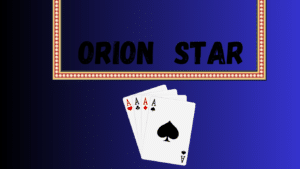
In the exciting world of online gambling, two games consistently stand out as the most popular: casino slots and poker. These games offer unique experiences, yet both share a common appeal — the potential for big wins and endless entertainment. Whether you’re a seasoned gambler or new to the world of online casinos, understanding these games and their nuances can enhance your overall experience. In this comprehensive guide, we’ll explore both casino slots and poker, examining their rules, strategies, and tips for success.
Let’s begin by diving into the world of casino slots. Once we’ve covered the essentials there, we’ll transition smoothly into poker, exploring both its variations and strategies to help you maximize your chances of winning.
Part 1: Understanding Casino Slots
What Are Casino Slots?
Casino slots are perhaps the most accessible and widely played games in any casino, both online and land-based. They are easy to understand, require no strategy, and offer a fast-paced, thrilling gaming experience. Players simply need to spin the reels and hope that the symbols align to create winning combinations.
Modern slot machines come in two basic types:
- Classic Slots: These are traditional 3-reel games that often feature fruit symbols, bars, and sevens. They are simple and ideal for players looking for a quick and straightforward gaming experience.
- Video Slots: These are more complex 5-reel games that feature multiple paylines, special symbols (like wilds and scatters), and exciting bonus rounds. Video slots can offer larger jackpots and more immersive experiences due to their advanced graphics and animations.
How Do Slots Work?
At their core, slots operate on a random number generator (RNG) system, which ensures that every spin is completely random and independent of previous spins. This means there is no pattern or strategy that can predict the outcome of the reels. However, many slots come with features that make gameplay more exciting and interactive.
Paylines refer to the number of potential winning combinations in a slot game. Some games offer just one payline, while others can have 25 or even 243 ways to win. Understanding the payline structure is crucial in choosing which slots to play.
Features of Modern Slots
- Wild Symbols: These symbols substitute for other symbols in a payline, helping you form a winning combination. For example, if you have three cherries and a wild symbol, it will substitute for a cherry, completing the payline.
- Scatter Symbols: Scatter symbols usually trigger special features, such as free spins or bonus rounds. Landing three or more scatter symbols on the reels can unlock additional rewards, making them highly sought after.
- Bonus Rounds: Many video slots feature bonus rounds, where players can win free spins or enter mini-games. These rounds can offer substantial payouts and increase your chances of hitting a big win.
- Progressive Jackpots: Progressive slots accumulate a jackpot over time. The more people who play the game, the larger the jackpot becomes. These jackpots can sometimes reach millions of dollars, making them a major attraction for gamblers.
Tips for Playing Casino Slots
While slots are mostly games of luck, here are a few tips to help you get the most out of your experience:
- Set a Budget: Slots can be fast-paced, so it’s easy to get caught up in the excitement. Set a spending limit before you start playing, and stick to it. Responsible gambling ensures you’re having fun without risking more than you can afford.
- Play Maximum Paylines: If the slot offers multiple paylines, make sure to play the maximum number. This increases your chances of hitting a winning combination, though it may also increase the cost per spin.
- Understand the RTP: Return to Player (RTP) is a percentage that indicates how much of the total money wagered on a game is returned to players over time. Look for games with a higher RTP to improve your chances of winning in the long run.
- Take Advantage of Bonuses: Many online casinos offer free spins or welcome bonuses for new players. Use these offers to explore different slots without risking your own money.
Part 2: Exploring the World of Poker
What Is Poker?
Poker is a card game that combines skill, strategy, and a bit of luck. Unlike slots, poker requires players to make decisions based on their cards, the betting rounds, and the actions of other players. The objective is to form the best possible hand or bluff your way to victory.
There are many variations of poker, each with its own set of rules and strategies. The most common version is Texas Hold’em, but games like Omaha, Seven-Card Stud, and Five-Card Draw also enjoy immense popularity.
The Basics of Poker
In poker, players are dealt a hand of cards, and the goal is to create the best possible combination using those cards. The most common hand rankings, from highest to lowest, are as follows:
- Royal Flush: A, K, Q, J, 10, all of the same suit.
- Straight Flush: Five consecutive cards of the same suit.
- Four of a Kind: Four cards of the same rank.
- Full House: Three of a kind plus a pair.
- Flush: Five cards of the same suit, not in sequence.
- Straight: Five consecutive cards of different suits.
- Three of a Kind: Three cards of the same rank.
- Two Pair: Two pairs of cards.
- One Pair: Two cards of the same rank.
- High Card: The highest card in your hand when no other hand is made.
In most poker games, betting occurs in rounds, and each player can either call (match the current bet), raise (increase the bet), or fold (discard their hand). The game continues until the best hand wins or all other players fold.
Poker Variations
- Texas Hold’em: Each player is dealt two private cards (hole cards), and five community cards are placed face up. Players can use these community cards along with their own hole cards to make the best hand.
- Omaha: Similar to Texas Hold’em, but each player is dealt four hole cards. Players must use exactly two of their hole cards and three of the community cards to make the best hand.
- Seven-Card Stud: This variation doesn’t use community cards. Players are dealt seven cards, three face down and four face up. The goal is to make the best five-card hand from the seven cards.
- Five-Card Draw: Players are dealt five private cards and have the opportunity to exchange some or all of them in hopes of improving their hand.
Strategies for Poker
Poker is much more than simply having the best hand. It involves strategy, psychology, and reading your opponents. Here are some strategies to consider:
- Play Tight, Play Smart: One common strategy is to only play strong hands. If you have a good starting hand (like pocket Aces or Kings), play it aggressively. If you have a weak hand, it’s often best to fold early.
- Bluffing: Bluffing is a cornerstone of poker. The goal is to convince your opponents that you have a stronger hand than you actually do. Timing and reading your opponents’ behavior are critical to successful bluffing.
- Position Is Key: The position in which you sit at the table can have a major impact on your strategy. Players who act later in a betting round have more information about the other players’ actions, giving them a strategic advantage.
- Know When to Fold: One of the most important skills in poker is knowing when to fold. If you’re holding a weak hand, it’s better to cut your losses early rather than continue betting and risk losing more chips.
- Manage Your Bankroll: Like with slots, it’s important to manage your poker bankroll wisely. Set limits for each session and don’t chase losses. The best poker players know when to step away from the table.
Online Poker: Tips for Success
Online poker offers the same exciting gameplay as land-based casinos, but there are some important differences. Here are a few tips for playing poker online:
- Be Aware of Tells: In a live game, players may give away clues (or “tells”) through their behavior. In online poker, these tells are absent, so focus on your opponents’ betting patterns and timing instead.
- Use Software Tools: Many online poker players use software tools to track opponents’ behavior and improve their decision-making. These tools can help you analyze statistics and find trends in your opponents’ play.
- Play Multiple Tables: Experienced online players often play at multiple tables simultaneously. This can increase your chances of winning, but it also requires a high level of skill and attention.
Conclusion: The Best of Both Worlds
Both casino slots and poker offer unique experiences that cater to different types of players. Slots are perfect for those seeking fast-paced, simple entertainment with the potential for big wins. On the other hand, poker offers a more strategic and social experience, with plenty of opportunities for skillful play and bluffing.
Whether you enjoy the thrill of spinning the reels or the strategy of poker, both games have their own distinct appeal. The key to enjoying these games is to understand the rules, play responsibly, and, most importantly, have fun.
So, next time you’re at an online casino, consider exploring both casino slots and poker. You may find that mixing the two games offers the perfect balance of excitement and challenge. Happy gaming!



